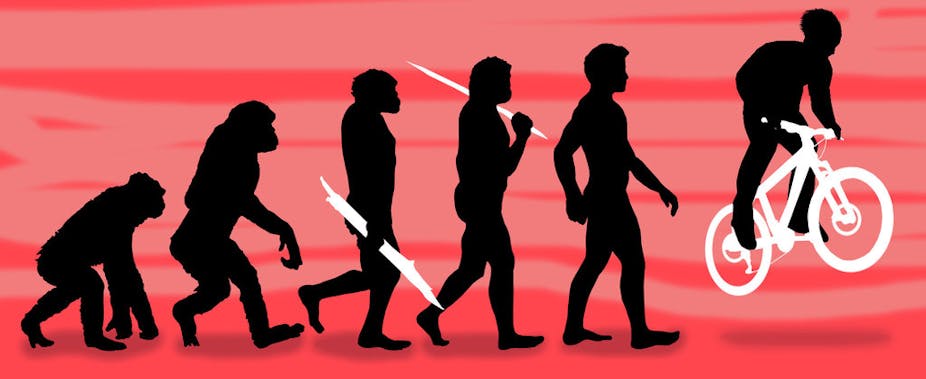Charles Darwin famously drew upon Thomas Malthus’s treatise on human population growth to build his theory of evolution by natural selection. Malthus was worried about the rising population of the lower classes in early 19th century England, but in his writing Darwin saw the potential mechanism for evolution.
If a population grows too large to be supported in its habitat, Malthus worried, some individuals must die before they reproduce. But Darwin reasoned that if survival depends upon physical traits, and if those traits vary among individuals and are passed on from parent to offspring, then those with more favourable traits are more likely to survive and reproduce.
Thus was born Darwin’s principle of natural selection, which we now understand operates upon any population where there is (genetic) variation, traits are inherited (typically genetically), and survival depends upon a struggle for existence given limited resources. This results in different survival of lineages, providing the basis for most evolutionary change.
Recently David Attenborough, the famous naturalist, was quoted in The Guardian, despairing that human overpopulation is robbing us of the richness of life. He said that humans have stopped evolving physically and genetically because, “We stopped natural selection as soon as we started being able to rear 90-95% of our babies that are born. We are the only species to have put a halt to natural selection, of its own free will, as it were.” The irony of invoking Malthusian fears of overpopulation to suggest it is happening because we “put a halt to natural selection” was apparently lost on the great naturalist.
Have humans really put a halt to natural selection and stopped evolving physically and genetically? Darwin’s own formulation of natural selection, and many discoveries from new research, suggest that the answer is a resounding “No”.
We have made much progress in reducing infant mortality in parts of the world and in combating many diseases. Yet children’s survival is by no means as assured as Attenborough suggests, nor is it uniform across the world. Many people lack access to basic healthcare and continue to die of diseases and malnutrition. Access to abortions, which Attenborough also blames for halting natural selection, has in fact enabled some cultures to selectively cull females. China’s one-child policy which Attenborough lauds has set off unknown evolutionary consequences. Moreover, even if we do reach the point of “being able to rear 90-95% of babies that are born”, that will only counter one of the conditions necessary for natural selection.
We have not eliminated genetic variation among humans. If anything, the human genome shows that variation has gone up with recent population explosion throwing up ever more mutations within the last 200 generations. We may therefore be evolving faster than before. Among them are mutations which keep the production of lactase (the enzyme for digesting milk) switched on throughout life. This persistence of lactase, beneficial after we domesticated cattle, first arose about 6000 years ago in Europe. It later evolved independently, through mutations in different genes in separate pastoral populations in Africa.
Colonising new environments favours faster reproduction apparently causing women to give birth at younger ages. Easy availability of calories also makes puberty set in earlier in richer countries. Meanwhile both natural and sexual selection remain quite active even in European populations through the industrial era.
Infectious diseases continue to exert selective pressures on our genes, in an evolutionary arms race that is challenging modern medicine as pathogens become resistant to drugs. Some regions of our genomes, such as that corresponding to the immune systems, are more variable and evolve more rapidly than other regions. For instance, the haemoglobin mutation causing sickle cell anaemia also confers resistance against malaria and is therefore favoured in regions where the latter is prevalent. Newer techniques allow us to find genetic variants in proteins that confer some resistance against other diseases (for example lassa fever and HIV) clearly resulting from recent selection.
Microbiology raises new questions about what it even means to be physically human, because our bodies teem with far more bacteria than human cells. This microbiome plays a critical role in our health. Many of these bacteria are subject to selection from changing human cultures and environments. A gene producing an enzyme that helps marine bacteria break down the cell wall of seaweed algae was recently found in the gut bacteria of Japanese sushi-eaters - a remarkable example of gene exchange among bacteria conferring a selective advantage to humans.
It is ironic that Attenborough fears overpopulation as a threat to the richness of life he has experienced could result in precisely the conditions of high mortality he says we have overcome. Only human ingenuity and cultural evolution may enable us to avoid that Malthusian and Darwinian nightmare, and helps us preserve the wonders of life only an Attenborough could reveal to us.

